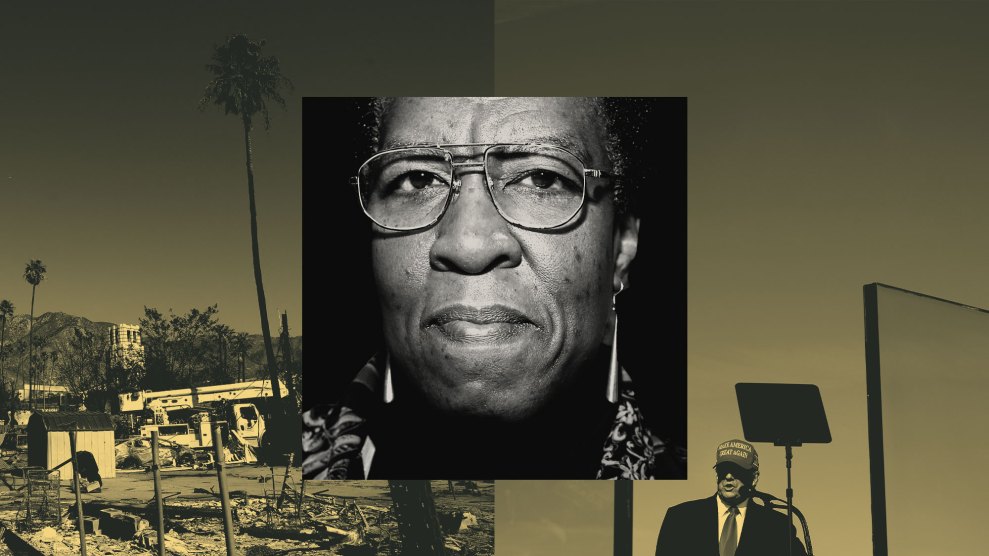“We now have the chief lobbyists for Big Tobacco
financing the payoff of the Speaker’s fine for lying to the Congress.”— Rep. George Miller (D-Calif.) on the floor of the House of
Representatives, April 17, 1997
“It does have a certain aroma to it. It might be cigarette
smoke you’re smelling, but it might be something more putrid.”— Richard Kluger, Pulitzer Prize-winning author of Ashes to Ashes:
America’s Hundred-Year Cigarette War, the Public Heath, and the Unabashed
Triumph of Philip Morris
Newt Gingrich claims he took the moral high ground
in accepting Bob Dole’s $300,000 bailout — but is the generous loan
really a bribe from Big Tobacco?
For starters, there are troubling connections between the loan offer and
Dole’s new employer, the heavy-hitting law firm Verner, Liipfert,
Bernhard, McPherson & Hand. The firm announced April 9 that it had hired
Dole as “special counsel”; Congress Daily reports that the firm
also extended to the former Senate majority leader a signing bonus close
to $300,000. Six days later, Dole proposed the loan on the speaker’s
Capitol balcony.
Verner, Liipfert lobbies for numerous industries that have business
before Gingrich’s Congress, including 90 companies in the Fortune 500. It
posted a 1996 lobbying income of $6.8 million, and the firm’s fees may be
even heftier this year: In February, five tobacco industry giants —
Philip Morris, RJR Nabisco, Brown & Williamson, U.S. Tobacco, and Loews
Corp. — announced they had retained the Washington law firm.
A traditionally Democratic firm, Verner, Liipfert employs former
Senate Majority Leader George Mitchell, former Texas Gov. Ann Richards,
former Treasury Secretary Lloyd Bentsen, and other powerful Dems with
clout in the Clinton administration; Mitchell has already negotiated with
the states on behalf of tobacco.
The firm’s hiring of Bob Dole, a longtime defender of tobacco
interests, suggests the obvious: Big Tobacco needs to buy clout in the
Republican Congress as well.
Why? At the same time Verner, Liipfert hired Dole, its tobacco clients
entered into unprecedented legal negotiations with their opponents:
Currently, 23 state attorneys general are suing the tobacco companies for
reimbursement for Medicaid programs that have spent billions treating
smoking-related illnesses. That’s not to mention the numerous
class-action suits brought by smokers, and individual suits on behalf of
injured family members. Tobacco’s once-impermeable defense began to
crumble last month when the Liggett Group, the smallest major U.S.
tobacco firm, admitted that cigarettes are addictive, cause cancer, and
are being marketed to children.
Big Tobacco is now discussing sweeping concessions: the regulation of
nicotine as a drug by the Food and Drug Administration; the banning of
some tobacco ads, all billboards, and trademark characters like Joe Camel
and the Marlboro Man; and the payment of more than $250 billion over the
next 25 years to compensate states and individuals for the costs of
tobacco-related illnesses.
In return, the industry wants blanket immunity from future lawsuits.
That’s where Bob Dole and Newt Gingrich come in: Congress must pass
special legislation to grant the tobacco companies the immunity they
seek. To that end, Big Tobacco hired Verner, Liipfert, which in turn
bought the former Senate majority leader, who in turn made the sweetheart
loan to the speaker of the House. It is a thankful Newt who could finally
push tobacco’s agenda through his Congress.
After all, whatever closed-door settlement is reached, Capitol Hill is
where the final tobacco deal will play out. “To expect Congress to take
legislation written by someone else and not expect them to change a
comma,” says Stanton Glantz, author of The Cigarette Papers, “is
to violate human nature.”
Aside from the tobacco taint, the loan raises other questions of
impropriety. In a letter released yesterday by the Congressional
Accountability Project, its director Gary Ruskin argues that the loan
violates House rules (see “Not in This
House“) because of its generous terms. After all, Newt doesn’t have
to pay one cent to Dole until 2005, three years after he must retire as
speaker. Once he leaves the House, he’s free to nab money from wherever
he wants, including leftover campaign and legal defense funds — the
politically unpopular pots he’s keeping his hands out of now. Dole may
even be allowed to forgive the loan at that point.
“The loan shouldn’t be allowed to stand,” says Ruskin. “Period.”
The chairman of the House Ethics Committee, James Hansen (R-Utah), has
to approve Newt’s loan, and he may well deny Newt a special exemption.
Hansen, who represents a largely Mormon constituency, might find it
politically — and ethically — sound to avoid any whiff of tobacco
money, and refuse the proposed arrangement.
In the end, Hansen must decide the question that so many are asking: Is
Newt really being punished by paying his fine with the suspicious loan
from Dole? “If the purpose of the punishment is to make Gingrich suffer
for his deeds,” wonders Ruskin, “what kind of punishment is it if it
causes him no pain at all?”
















